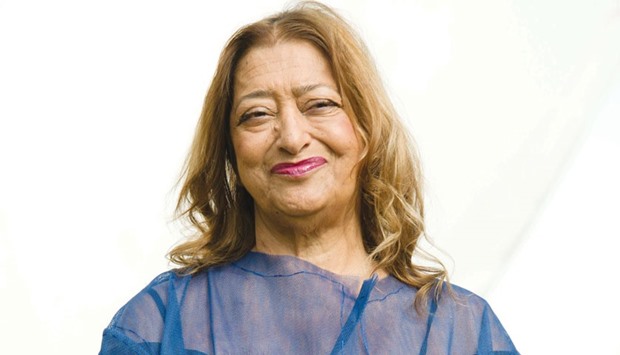The designer of the London Olympics aquatics centre, Guangzhou opera house and buildings in countries ranging from Saudi Arabia and South Korea to Azerbaijan, bequeathed a lump sum of £500,000 to her business partner Patrik Schumacher. Hadid also left a total of £1.7mn to four nieces and nephews, as well as her brother Haytham Hadid, whose share was £500,000.
The architect, who was made a dame in 2012, was unmarried with no children and left her international design businesses, which account for the bulk of her wealth, in trust.
Hadid rose to become one of the world’s most famous architects with her brand of mathematically inspired curving buildings. She died aged 65 after suffering suspected heart failure while on holiday in Miami following an earlier bout of bronchitis.
Her will, obtained by the Architects’ Journal, shows that the net value of her estate was £67,249,458. The calculation was filed in the high court dated December 14, 2016.
Schumacher, a German architect who has taken over the running of Hadid’s London-based practice, angered his fellow executors of Hadid’s will in November after making a provocative speech that advocated abandoning social housing, the closure of art schools and building over Hyde Park. The executors are Schumacher, Peter Palumbo, the property developer, Brian Clarke, the artist, and Rana Hadid, the architect’s niece. They upbraided Schumacher in a public statement, saying Zaha Hadid “would have been totally opposed to these views”.
The will shows Hadid is leaving her architecture practice, of which she was the sole owner, in trust. In the year to the end of April 2015, Zaha Hadid Ltd turned over £48mn and employed 372 people.
Hadid gave her executors powers to distribute all or some of the income from her several businesses, including the practice, to a wide range of parties. They include “past, current and future employees and office holders of the companies”, and the Zaha Hadid Foundation, which was set up to promote architectural education and exhibitions of Hadid’s work. Others who could benefit are family members and charities.
The will states that “for the moment” the trustees are her executors: Schumacher, Clarke, Palumbo and Rana Hadid.
Hadid was born in Baghdad in 1950 and became a revolutionary force in British architecture even though she struggled to win commissions in the UK for many years. She studied mathematics at the American University of Beirut before launching her architectural career in London at the Architectural Association.

